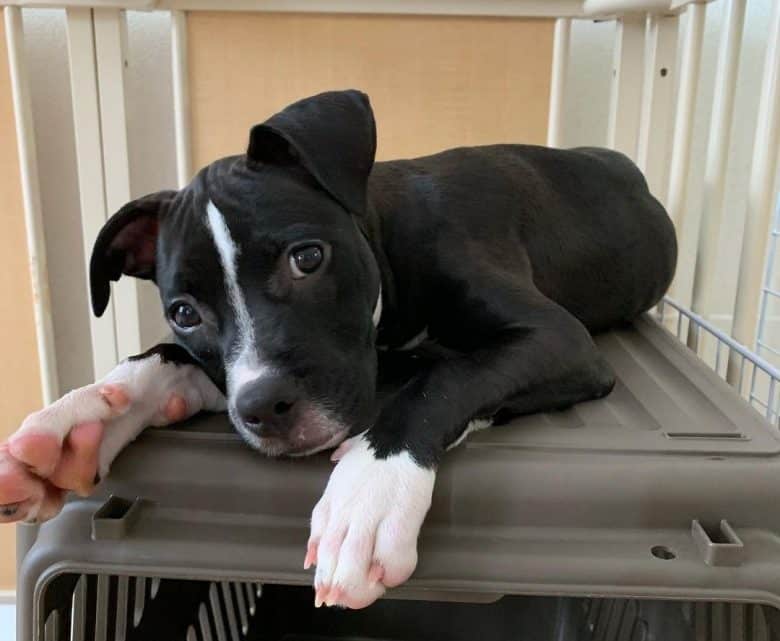A Pitbull puppy from 8 to 12 weeks will need about 2 cups of food, divided into equal meals. Female Pitbulls will eat less food than males will, on average. At 3 months, your puppy will need more food, around 3 cups each day, eventually getting up to 4 to 5 cups a day.
Health issues that can influence a Pitbull puppy’s growth
Parasites are the most common factor in a Pitbull puppy’s stunted growth. Therefore, it’s important to deworm your pup on a regular basis.
Experts say that Pitbull dog owners should delay strenuous dog training until your dog is fully grown. Too much stress may cause your dog’s growth plates to deform, which can be a debilitating disorder.
Pit Bull Growth and Weight Chart
| Age | Male Weight | Female Weight |
|---|---|---|
| 1 month old | 3 – 5 lbs | 2 – 4 lbs |
| 2 months old | 5 – 15 lbs | 5 – 15 lbs |
| 3 months old | 10 – 20 lbs | 10 – 20 lbs |
| 4 months old | 15 – 25 lbs | 10 – 20 lbs |
| 5 months old | 15 – 30 lbs | 15 – 25 lbs |
| 6 months old | 20 – 35 lbs | 15 – 30 lbs |
| 7 months old | 20 – 40 lbs | 15 – 35 lbs |
| 8 months old | 25 – 45 lbs | 20 – 35 lbs |
| 9 months old | 25 – 50 lbs | 20 – 40 lbs |
| 10 months old | 25 – 50 lbs | 25 – 40 lbs |
| 11 months old | 30 – 55 lbs | 25 – 45 lbs |
| 12 months old | 30 – 55 lbs | 25 – 45 lbs |
| 2 years old | 35 – 60 lbs | 30 – 50 lbs |
The Ultimate Pitbull Growth Chart by Weight

Pitbulls puppies have the potential to grow up to 65 lbs. If you’re wondering what your dog’s adult weight is going to be, we have a Pitbull puppy weight chart that can give you an approximate estimation of your dog’s adult size.
While the charts below should give you an idea of your Pittie pup’s weight gain and growth trajectory, it is meant to be an example and not as a hard-and-fast rule.
FAQ
How do I potty train my 8 week old pitbull puppy?
What should I expect from my 8 week old puppy?